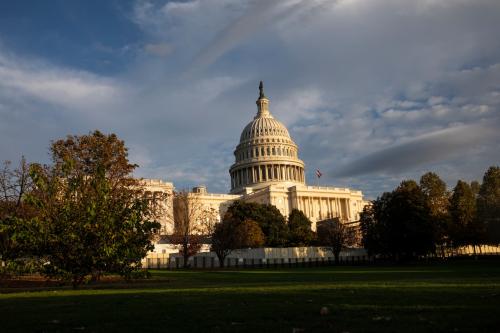

2:00 pm EDT - 3:30 pm EDT
Past Event
2:00 pm - 3:30 pm EDT
1775 Massachusetts Avenue N.W.
Washington, DC
20036
While the juvenile justice system has recently undergone a wave of progressive reforms focused on creating pathways to re-entry, there remains an uneven treatment of juvenile records that makes it difficult for returning youth to rebound from their involvement with the justice system. State policies that govern the public access and permanency of a child’s criminal history well into adulthood are diverse and leave loopholes that hinder their educational and employment prospects, as well as their ability to reintegrate successfully into society.
On March 20, the Race, Prosperity, and Inclusion Initiative at Brookings convened a panel of experts to assess the state of play on juvenile criminal justice records policy. These experts examined how policies surrounding the confidentiality and retention of records have deviated from both their historical domestic principles and from international norms rooted in rehabilitative justice. The panel also debated which remedies can yield the most effective safeguards to protect both children’s welfare and public safety.
Following the conversation, speakers answered questions from the audience.
Panelist



William A. Galston
July 2, 2025

Scott R. Anderson
June 26, 2025

Eloise Pasachoff, Craig Schulman, Angelene Superable
June 18, 2025